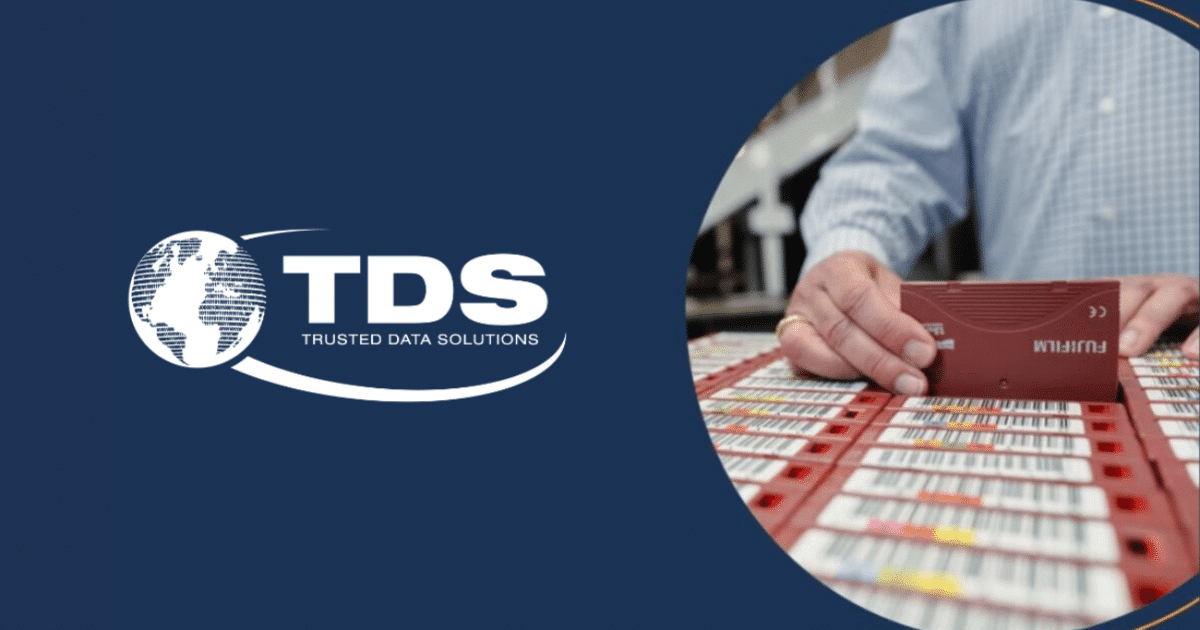Overcoming the challenges of legacy data management.
Data serves as the lifeblood of any organization, forming the foundation for informed decision-making, performance tracking, and innovative breakthroughs. The swift emergence of trends and technologies such as smart data, intelligent automation, and a greater focus on the user experience (UX) have accelerated the need for data collection.
However, this pursuit of information abundance comes with a potential pitfall – today’s data can quickly become tomorrow’s liability without a strong legacy data management strategy.
6 Challenges for Organizations as Data Takes on Legacy Status
As organizations continue to harness the power of data in the digital age, they will inevitably encounter challenges in effectively managing their legacy data. This presents several problems that can delay an organization’s progress and obstruct its ability to thrive in an ever-evolving landscape.
1) Accumulation and storage
Legacy data can quickly pile up over time and is often stored in outdated formats (like backup tapes), or on systems that are incompatible with current technologies. When it is time for organizations to choose the right solution to securely maintain and manage their legacy data, it can incur high costs. This is because deciding on an incorrect solution can slow down data retrieval times and cause additional or expensive financial investments.
2) Accessibility and retrieval
Locating specific information within legacy data that is still accessible may prove challenging, because of the numerous formats and systems, making the retrieval process time-consuming and resource-intensive. Additionally, as organizations may need to transfer legacy data various times to different repositories or review them for what will be kept in storage, it becomes even more difficult for work teams to perform their job efficiently.
3) Data security and privacy
As data transitions into legacy status, they are vulnerable to security breaches and privacy risks. This situation becomes even more apparent when sensitive information is involved, like financial or personal information, making it a prime target for unauthorized access or cyberattacks. As standards and regulations change over time, data not in use would still need to meet the current requirements, adding on to the organization’s challenges especially if the legacy formats or systems lack support from the original manufacturer.
4) Compliance issues
Legacy data must adhere to legal and regulatory mandates governing storage, management, protection, and expiration. Some examples include data protection laws and industry regulations governing how long certain types of data must be retained and how they should be securely disposed of when no longer needed. Non-compliance can result in legal consequences, fines, and even reputational damage.
5) Technological obsolescence
Factors like maintaining and preserving older hardware, integration issues, or system incompatibility can often lead to obsolescence. Organizations may find themselves needing to maintain outdated tech solely for the sake of managing their legacy data. This is not only costly and unsustainable but can also lead to employees having to waste resources on mundane activities, instead of focusing on high-value tasks.
6) Financial requirements
Managing legacy data incurs various costs, like needing to keep data from historical transactions or customer and employee records in a secure storage. Upgrading and maintaining outdated formats or systems can quickly become expensive, due to a lack of skilled professionals and specialized tools. Even when it comes to migrating or archiving legacy data on cloud storage, it can be a financial risk, particularly around aspects like total cost of ownership and return on investment.
5 Steps to Take Your Legacy Data Management to the Next Level
While legacy data can remain an asset to any organization, it becomes a liability without a strong management strategy. Imagine the chaos that comes with obsolete source systems and data formats, or if legacy data becomes corrupted and is no longer retrievable.
Moreover, if an organization were to depend on a small number of individuals who retain the knowledge of old systems, there is an additional risk. If these individuals leave or retire, it can hinder the organization’s ability in managing or accessing data from old systems. With that said, there are steps your organization can take to overcome these issues.
1) Comprehensive data assessment and inventory
Start by conducting a thorough assessment of your legacy data, identifying its types, sources, and relevance to current business processes. Then, create a detailed inventory to understand the volume, quality, and dependencies of legacy data. This information serves as a foundation for informed decision-making throughout the management process.
2) Strategic data migration and modernization
Develop a strategic plan for data migration and modernization, prioritizing critical data sets and applications. This is where you should consider adopting modern technologies and cloud solutions that enhance data accessibility, scalability, and security. Implement a phased approach to minimize disruptions, ensuring a smooth transition from legacy formats and systems to more efficient and flexible environments.
3) Data quality assurance and standardization
Next, you would need to invest in cleansing processes to address inconsistencies, errors, and duplicates within legacy data. You should also implement data governance practices to maintain consistency and accuracy over time. By improving the quality of your data, you enhance its utility for analytics, decision-making, and compliance, mitigating challenges associated with inaccuracies or inconsistencies.
4) Security and compliance protocols
Prioritizing the implementation of robust security measures for protecting your business’ legacy data is crucial, especially during the migration process. It is important to ensure compliance with data protection regulations by adopting encryption, access controls, and regular security audits. Keep in mind that you would need to consider modern security solutions to address evolving threats and vulnerabilities, safeguarding sensitive information throughout its lifecycle.
5) Engage legacy data experts
Finally, you can instead opt to leverage the specialized knowledge and experience of legacy data experts who possess a deep understanding of outdated technologies and data management challenges. Collaborating with the right one will allow you to develop customized solutions that address the specific challenges faced by your organization, while establishing an ongoing partnership with them will provide you with the continuous support and adaptation necessary in keeping your critical information accessible yet secure.
Is Your Legacy Data Weighing You Down?
As technology evolves, legacy experts can guide organizations in adapting their data management strategies, ensuring that solutions remain relevant and effective in the ever-changing landscape.
Trusted Data Solutions (TDS) offers several solutions to help organizations manage their legacy data to continue deriving value from it. With over 30 years of experience and thousands of successful projects globally, TDS has set the standard in compliantly transforming the management and accessibility of legacy data and electronically stored information.
| Archived Data Management Solutions | TDS’ Restoration Assurance Program (RAP) allows organizations to eliminate the need to maintain physical hardware and software but maintain access to data on legacy backup tapes. As a fully managed solution, it can be customized to meet specific customer needs, with the guaranteed capability to restore legacy backup data. It supports all major backup environment and tape types, in addition to having an easy onboarding process as it does not require the customer’s hardware. Additionally, TDS provides selective solutions to assist customers in preserving long-term tape archives through media refresh and repair. These include: One-to-one tape copyTape copy and consolidate for select backup typesTape to cloudTape repair |
| Email Archive Migration Solutions | TDS specializes in email archive migration solutions where their Evolve Solutions assist organizations in the fast, compliant, and secure migration of email archives. Organizations can move data intelligently to meet operational and records management requirements. Evolve also keeps meticulous data transfer logs and produces detailed reports for a secure migration process. Evolve: Licensable high-performance tool that is used for seamless, secure, and transparent DIY email migrations.Evolve+: For organizations that are seeking a fully managed, end-to-end migration delivered by in-house experts. |
Although legacy data can pose a challenge, taking active measures to manage it properly will ensure that organizations can maintain data integrity, security, and accessibility. In addition, proactive management also minimizes risks and ensures the continued usability of a business’ historical information.
Talk to our experts today to embark on your legacy data management journey.


